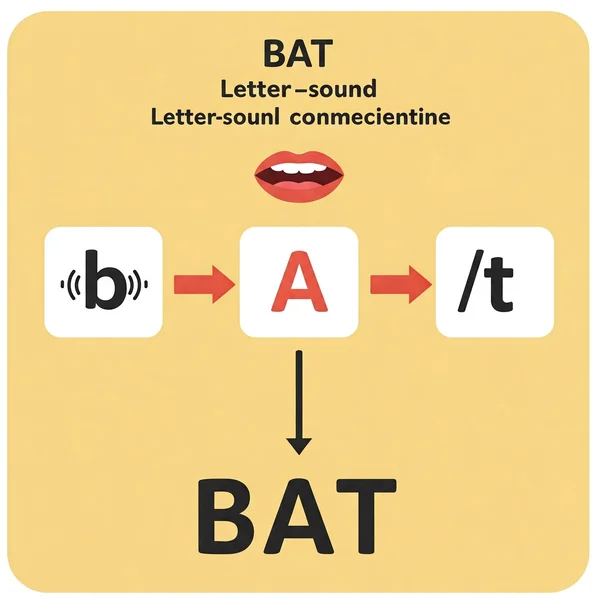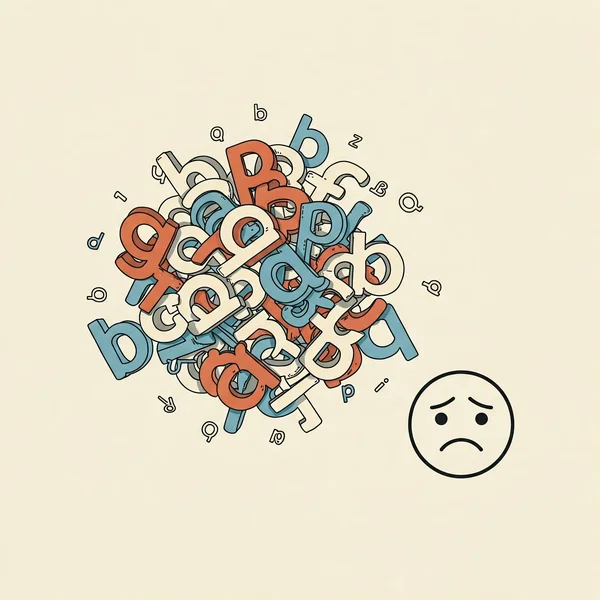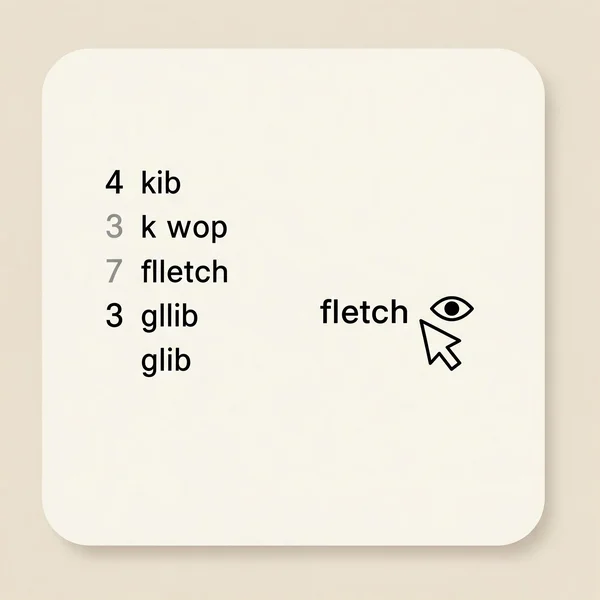Dyslexia Screening: Why Decoding Skills Are Crucial
May 5, 2025 | By Clara Finch
Understanding Decoding in Dyslexia Screening
Reading is a gateway to knowledge, communication, and opportunity. But for millions, unlocking this gate presents significant challenges, often linked to dyslexia. At the heart of proficient reading lies a crucial skill: decoding. But how does dyslexia test work when it comes to this vital skill? This article dives deep into decoding skills, their critical link to dyslexia, and why they are a cornerstone of effective online dyslexia screening, like the tools available when you visit our website to learn more. Understanding decoding is the first step towards identifying potential reading difficulties and seeking the right support.
What Exactly Are Decoding Skills in Reading?
You might wonder, what precisely allows us to transform those symbols on a page into meaningful words? That's where decoding skills come into play. It's the ability to apply your knowledge of letter-sound relationships, including knowledge of letter patterns, to correctly pronounce written words. Think of it as cracking the code of written language.
The Phonics Foundation
At its core, decoding relies heavily on phonics. This involves understanding that letters (graphemes) represent specific sounds (phonemes) and using this knowledge to sound out words. Recognizing that 'c' makes a /k/ sound in 'cat' but an /s/ sound in 'cent' is part of this foundational skill. Without a solid phonics base, reading becomes a guessing game rather than a systematic process.

Sounding Out Words: The Decoding Process Explained
The actual process of sounding out words involves segmenting a word into its individual sounds or syllables, blending those sounds back together, and recognizing the word. For example, to decode 'blast', a reader identifies /b/, /l/, /a/, /s/, /t/, and then blends them smoothly to pronounce the word. This happens almost instantaneously for skilled readers but can be laborious for those struggling with decoding.
Why Strong Decoding is Foundational for Reading Fluency
Why is mastering decoding so important? Because it directly impacts reading fluency – the ability to read text accurately, quickly, and with proper expression. When readers don't have to constantly struggle with sounding out words, they can focus their mental energy on understanding the meaning of the text (reading comprehension). Strong decoding builds the bridge to fluent reading.
The Critical Link: Dyslexia and Decoding Challenges
So, is decoding related to dyslexia? Absolutely. Dyslexia is fundamentally a neurological difference that primarily affects the skills involved in accurate and fluent word reading and spelling. Difficulties with decoding are often the most prominent characteristic of dyslexia.
Understanding Phonological Processing Difficulties in Dyslexia
Many individuals with dyslexia experience underlying difficulties with phonological processing. This refers to the brain's ability to perceive, remember, and manipulate sounds in spoken language. Challenges in phonological awareness (recognizing and working with sounds) directly hinder the ability to map sounds onto letters, which is the essence of decoding.
Common Decoding Errors You Might See
Struggles with decoding manifest in various ways. Common decoding errors include substituting words (e.g., reading 'house' as 'horse'), omitting or adding sounds, reversing letter sequences (though less common than believed), slow and hesitant reading, or guessing words based on the first letter or context instead of sounding them out accurately. Recognizing these patterns can be an early indicator of potential risk.

How Decoding Weakness Impacts Reading Comprehension
When so much cognitive effort goes into just figuring out the words on the page, little mental bandwidth is left for understanding the overall meaning. This is why significant decoding weakness inevitably impacts reading comprehension. Even if a child or adult can eventually sound out a word, the effort involved disrupts the flow and makes it hard to grasp the bigger picture of the text.
How Online Dyslexia Screening Measures Decoding Skills
Given its importance, how do tools like an online dyslexia screening actually assess decoding? These screeners employ specific tasks designed to evaluate this core skill efficiently. Many parents and adults ask, what skills does a dyslexia test measure effectively online? Decoding is a primary one.
Typical Tasks Used in Online Decoding Tests
A common and effective method used in many screeners, including scientifically-based ones, involves non-word reading. Participants are asked to read made-up words (like 'vib' or 'sladding') that follow standard English phonetic rules but have no meaning. This isolates decoding ability because readers cannot rely on vocabulary knowledge or context; they must apply their letter-sound knowledge. This provides a purer measure of their decoding skills.

Assessing Speed and Accuracy: What Screeners Look For
Effective screeners evaluate both the speed and accuracy of decoding. It’s not just about if someone can sound out a word, but also how efficiently and correctly they do so. Slow, effortful, or error-prone decoding, even with eventual success, can indicate underlying difficulties consistent with dyslexia risk.
Interpreting Decoding Results from an Online Dyslexia Test
Results from an online dyslexia test focusing on decoding will typically indicate whether performance falls within, below, or significantly below the expected range for the individual's age. It’s crucial to remember these are screening results, highlighting areas of potential risk, not a formal diagnosis. They provide valuable data points to guide further investigation if needed.
Why Focus on Decoding in a Dyslexia Test?
With various reading skills involved, why is there such a strong emphasis on decoding within a dyslexia test? The reason lies in its diagnostic significance and its role as a foundational skill.
Decoding as a Primary Indicator of Dyslexia Risk
Difficulties with decoding, particularly related to phonological processing, are widely recognized by researchers and clinicians as a primary dyslexia risk indicator. While dyslexia can manifest differently, challenges in accurately and fluently decoding words are almost always present. Therefore, assessing this skill is highly informative for screening purposes.
The Value of Early Identification of Decoding Issues
The impact of decoding difficulties can cascade through a person's academic and personal life. Early identification of these issues through screening allows for timely intervention. Targeted support focused on building phonics and decoding skills can significantly improve reading outcomes and prevent years of struggle and frustration. Taking a proactive step like using an online screening tool can make a real difference.
Distinguishing Dyslexia from General Reading Difficulties
While various factors can cause reading difficulties, the specific pattern of significant trouble with decoding, often alongside related issues like poor spelling and phonological weaknesses, is characteristic of dyslexia. Screening tests focusing on decoding help differentiate potential dyslexia risk from other issues, like comprehension problems stemming from different causes.
What About Phonological Awareness and Other Skills?
While decoding is critical, it doesn't exist in isolation. A comprehensive understanding of reading ability, and therefore robust screening, often considers related skills. What is phonological awareness, and how does it fit in?
The Foundational Role of Phonological Awareness
As mentioned earlier, phonological awareness – the ability to recognize and manipulate sounds in spoken language – is the bedrock upon which decoding skills are built. Tasks assessing rhyming, sound blending, and segmenting are often included in screening or assessment batteries because weakness here strongly predicts decoding struggles.
How Decoding Interacts with Fluency and Comprehension Tests
Decoding ability directly influences reading fluency and comprehension. Screeners might include tasks measuring reading speed or passage comprehension to get a broader picture. However, strong decoding is usually a prerequisite for good performance in these other areas when dyslexia is the underlying issue.
Limitations: What a Decoding Score Doesn't Tell You Alone
It's important to acknowledge the limitations. A score on a decoding task, while informative, is just one piece of the puzzle. It doesn't provide a full diagnostic picture or capture other strengths or weaknesses (like vocabulary or background knowledge). That's why screening results should always be interpreted as risk indicators prompting further evaluation if concerns persist. An online dyslexia test offers valuable insights, but a formal diagnosis requires a comprehensive assessment.

Decoding Skills - Key Insight from Your Dyslexia Screening
Decoding skills are the engine of proficient reading. Difficulties in this area are a hallmark of dyslexia, impacting fluency, comprehension, and overall academic success. Scientifically-based online dyslexia screening tools, like the one offered at DyslexiaTest.Online, focus significantly on assessing decoding because it's a powerful indicator of potential risk.
While an online screener provides crucial initial insights quickly and conveniently, it's the first step, not the final word. If a screening suggests potential difficulties, further comprehensive evaluation by a qualified professional is recommended for a formal diagnosis and tailored support plan. Understanding the role of decoding empowers you to interpret screening results more effectively and take informed next steps.
Have you noticed challenges with sounding out words in yourself or someone you know? What are your thoughts on the importance of decoding? Share your experiences or questions in the comments below! Ready to get a clearer picture of potential dyslexia risk? Take our quick online dyslexia screening test today.
Frequently Asked Questions about Decoding and Dyslexia Tests
Is poor decoding always a sign of dyslexia?
Not necessarily. While significant decoding difficulty is a primary characteristic of dyslexia, other factors like inadequate instruction, hearing impairments, or other learning differences can also affect decoding. However, persistent and marked difficulty despite adequate instruction strongly warrants investigation for dyslexia risk, which an online dyslexia screening can help initiate.
Can decoding skills be improved with practice?
Yes, absolutely! Targeted, explicit, and systematic instruction in phonics and decoding strategies (often through structured literacy approaches) can significantly improve decoding skills, especially when intervention starts early. Practice and the right support make a huge difference.
How is decoding tested differently in screening vs. a formal assessment?
Screening tools (like online tests) aim for quick, efficient identification of risk. They often use focused tasks like non-word reading to get a reliable indicator. A formal dyslexia assessment conducted by a professional is much more comprehensive. It involves a wider range of tests assessing decoding, phonological processing, fluency, comprehension, spelling, writing, and potentially cognitive abilities, leading to a formal diagnosis.
What other reading skills does the online dyslexia test at DyslexiaTest.Online evaluate?
Our online dyslexia test is designed based on scientific research to provide a robust screening. Besides core decoding abilities, it often evaluates related foundational reading skills critical for identifying dyslexia risk. To understand the specific skills assessed by our tool, we encourage you to explore the details on our website.